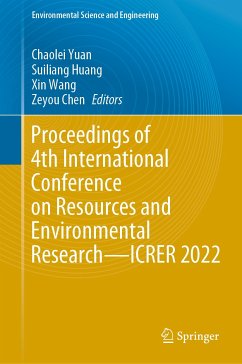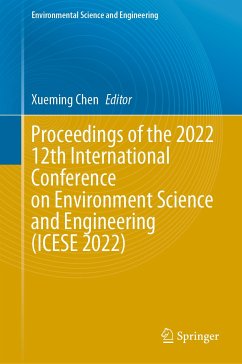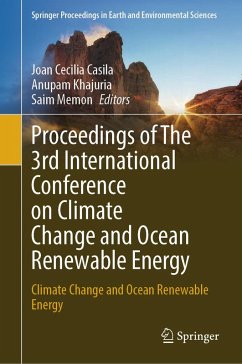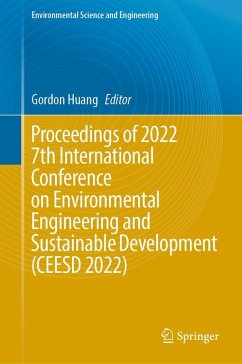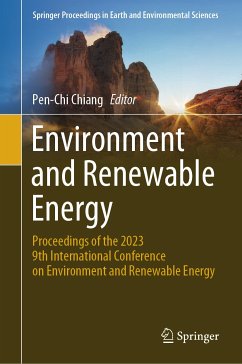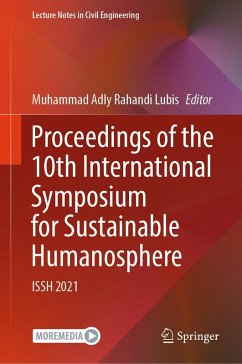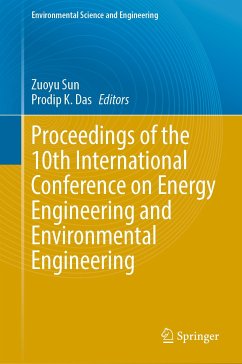
Proceedings of 2022 4th International Conference on Environment Sciences and Renewable Energy (eBook, PDF)
Selected Topics on New Developments in Environmental and Energy Technologies
Redaktion: Baeyens, Jan; Deng, Yimin; Rossi, Barbara; Dewil, Raf
Versandkostenfrei!
Sofort per Download lieferbar
136,95 €
inkl. MwSt.
Weitere Ausgaben:

PAYBACK Punkte
68 °P sammeln!
This book consists of selected papers from the 2022 4th International Conference on Environment Sciences and Renewable Energy, which was held as a fully virtual conference during May 27-29, 2022. The book overviews the latest progress in environmental and energy technologies with a specific focus on wind turbines and hydrogen production. In the field of environmental science, wastewater treatment, air pollution abatement, solid waste treatment, and general policy recommendations are discussed. Technology advances, especially in wastewater nutrients and micropollutant removal, are covered. In p...
This book consists of selected papers from the 2022 4th International Conference on Environment Sciences and Renewable Energy, which was held as a fully virtual conference during May 27-29, 2022. The book overviews the latest progress in environmental and energy technologies with a specific focus on wind turbines and hydrogen production. In the field of environmental science, wastewater treatment, air pollution abatement, solid waste treatment, and general policy recommendations are discussed. Technology advances, especially in wastewater nutrients and micropollutant removal, are covered. In policy measures, cost allocations, optimum recycling strategies, and environmental footprint allocations of different environmental technologies are included. In the field of renewable energy, several hot topics, including solar cells, offshore floating wind turbines, and renewable energy resource potentials in different regions are considered.
Dieser Download kann aus rechtlichen Gründen nur mit Rechnungsadresse in A, B, BG, CY, CZ, D, DK, EW, E, FIN, F, GR, HR, H, IRL, I, LT, L, LR, M, NL, PL, P, R, S, SLO, SK ausgeliefert werden.



